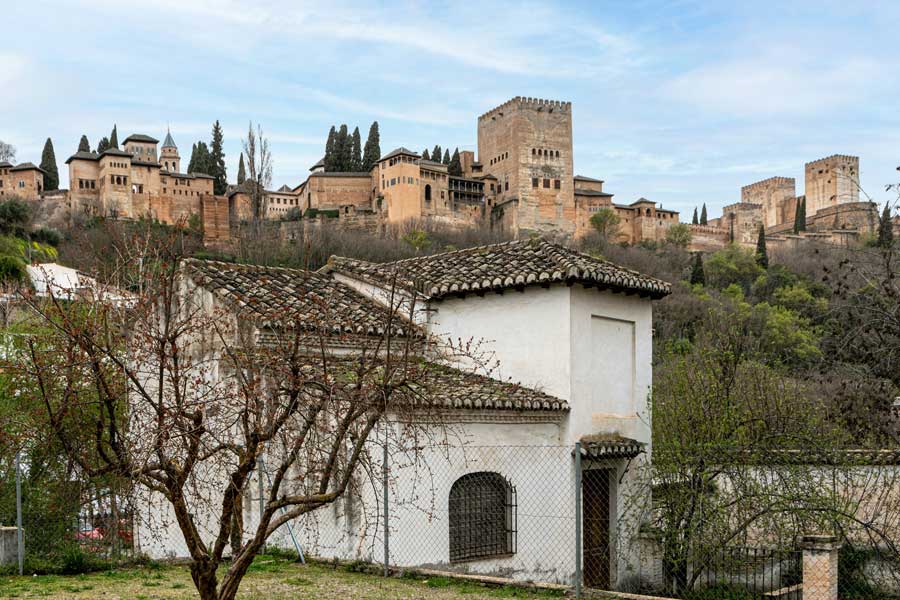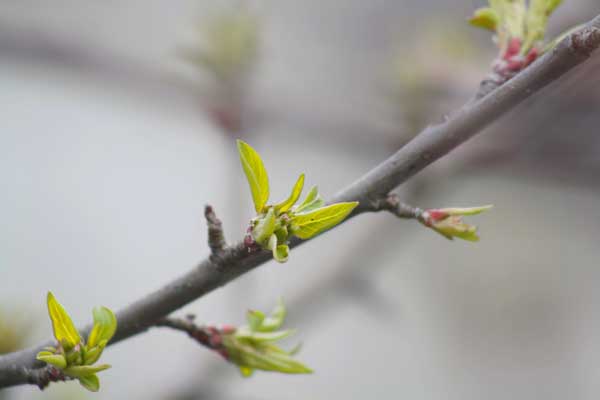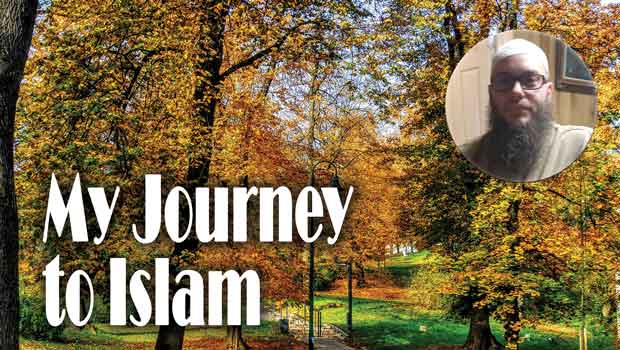One of my earliest experiences at an Islamic conference was when I attended the ISNA Convention in Washington D.C. over two decades ago. It was the first time the Islamic Society of North America held its annual convention in D.C., after establishing it in Chicago for the previous 38 years. It was also its first large event after the attacks of September 11, 2001. The inaugural session of the 39th Annual Convention in 2002 opened with a solemn prayer for the victims of the 9/11 terrorist attacks. The theme of the convention was “A Call for Peace and Justice,” and began with moving speeches from a multitude of Muslim leaders from around the country. Among the many leaders who made statements during the opening session was Imam Benjamin Pérez, whom I would later meet at a session by and about Latino Muslims.
Prior to leaving my house for the conference, I grabbed a pin with a Puerto Rican flag and secured it on my hijab, above my heart. I had only been Muslim for three years, and I was living in Maryland at the time. I did not know many Latino Muslims personally, so I held the hope that if there were any present at the ISNA convention, they would notice my pin and approach me. As I zigzagged through the crowd of Muslims, hoping to spot another Puerto Rican or Latin American, I was utterly disappointed. In the sea of familiar-looking faces, there was not one that shared my background. But just when I started to lose hope, a friend pointed out a session on the convention’s printed program.
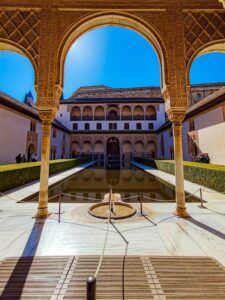 There was a panel discussion about Islam among Latino Americans whose speakers included Muslims with Spanish names. When I checked the session’s time, I realized that it had already started, so I took note of the hall number and sprinted there. When I made it to the conference room completely out of breath, it was packed. There were only a few seats left, so I made my way to an empty chair and sat down to listen, in awe of the mostly Latino Muslim panel. It was the first time I heard Muslim leaders who shared some of my cultural background. The panelists included Mexican American Imam Benjamin Pérez (may Allah have mercy on him), a Dominican brother named Isa Contreras, and others. They spoke about the growing number of Latin Americans embracing Islam, their own experiences embracing Islam in their respective communities, and the work that still needed to be done to bridge the gap between Muslims and our Spanish-speaking neighbors.
There was a panel discussion about Islam among Latino Americans whose speakers included Muslims with Spanish names. When I checked the session’s time, I realized that it had already started, so I took note of the hall number and sprinted there. When I made it to the conference room completely out of breath, it was packed. There were only a few seats left, so I made my way to an empty chair and sat down to listen, in awe of the mostly Latino Muslim panel. It was the first time I heard Muslim leaders who shared some of my cultural background. The panelists included Mexican American Imam Benjamin Pérez (may Allah have mercy on him), a Dominican brother named Isa Contreras, and others. They spoke about the growing number of Latin Americans embracing Islam, their own experiences embracing Islam in their respective communities, and the work that still needed to be done to bridge the gap between Muslims and our Spanish-speaking neighbors.
After their presentations there was a question-and-answer session, so I eagerly stood up, approached the available microphone, told them my story, and asked how I could get in touch with other Latino Muslims. I think I was still catching my breath when I suggested I get the contact information of the Latin American Muslims on the panel so I could stay in touch with them. Finding others like me was important, because even though Muslims all constitute one brotherhood and sisterhood, human beings tend to seek out people of similar backgrounds and experiences. Through this meeting, I was introduced to the Latino American Dawah Organization (LADO) led by Mexican American Juan Galvan, whose online presence on Yahoo! Groups allowed me to connect with Latino Muslims from around the country.
In the following years, I would develop relationships, join dawah efforts, and volunteer at different organizations to translate material into Spanish. Eventually, when I married another Hispanic convert, together we founded an organization called Hablamos Islam(We Speak Islam) with the purpose of creating educational resources about Islam in the Spanish language, with Latino families in mind. Eventually, it also evolved into creating programming and literature for children. Dawah organizations often forget to factor the youth into their outreach efforts, but when Latino families are entering the faith in rising numbers, it is only natural that they need educational tools for their children. I learned this firsthand. During this whole process, I had children of my own, and now my eldest is in his late teens. Although Latino Muslims were becoming increasingly visible– seeking higher Islamic education and forming their own organizations and programs – there were (and still are) areas of outreach that are lacking.
Fast-forward over twenty years later to 2023. Allah has a way of bringing things full circle. A few months ago, I had the pleasure of helping to organize and participate in the Spanish sessions at the ICNA-MAS Convention 2023 in Baltimore, Maryland. I was not a newcomer, having been involved in the planning of Spanish language, convert, and sisters’ programs since 2010. Yet after over a decade of involvement in the weekend-long, eman-boosting conference, I noticed something different in the audience. This time as I sat on a panel with two other Latino speakers, I saw something incredible. Two young couples walked into the hall, and I recognized the wives – both were South Asian and daughters of two sisters I knew personally but I had not seen since the Covid lockdowns began in early 2020. I would have wondered why they were walking into a Spanish-only session had it not been for the gentlemen beside them. The girls had gotten married recently and both their husbands were Latinos. The two young men had converted to Islam, one Mexican and the other Guatemalan.
The theme of this past year’s convention was “Preserving Faith, Building the Future,” and I was speaking about the importance of educating our families about Hispanic Heritage. And there in front of me was an example of what a future looks like where Latino Muslims and those of all different backgrounds come together to not only coexist but accept one another as equals. Twenty years after that panel of Latino Muslim speakers called for the Muslim ummah to recognize and reach out to Latinos, we have a thriving community of intercultural couples, generations upon generations of Latin American Muslims, Latino organizations, imams, and even Latino-led Islamic centers serving the needs of our community. Nevertheless, there is still much work to be done.
The Importance of Learning About Hispanic Heritage
As Muslims, we have an obligation to seek knowledge. Prophet Muhammad (peace be upon him) said in an authentic hadith: “The seeking of knowledge is obligatory for every Muslim” (Ibn Majah).This teaching emphasizes the importance of acquiring knowledge to strengthen our faith and deepen our understanding of Islam.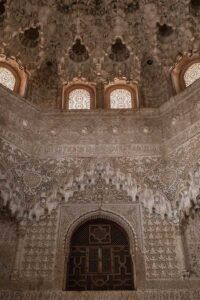
Part of this knowledge entails examining our own history, including Hispanic heritage, and understanding its relevance within the broader context of Islamic history. By doing so, we not only honor our diverse cultural roots but also forge a stronger connection with our Latino brothers and sisters. Just as there are initiatives to honor other members of our community, we should also highlight the stories of Latino Muslims. I even dare say we need to prioritize Spanish outreach in every American masjid.
Preserving and sharing our faith is part of our collective responsibility. We have a graphic description of what happens when we ignore this sacred duty. Allah says in the Qur’an: “O believers! Whoever among you abandons their faith, Allah will replace them with others who love Him and are loved by Him. They will be humble with the believers but firm towards the disbelievers, struggling in the Way of Allah, fearing no blame from anyone. This is the favor of Allah. He grants it to whoever He wills. And Allah is All-Bountiful, All-Knowing” (5:54).
We cannot continue lamenting what was lost and ignoring the blessings and opportunities we have in front of us. For example, despite the expulsion of Muslims from Spain, the influence of their culture and knowledge is reflected in the architecture, art, and traditions of Latin America. Although many Muslims from Al-Andalus were banished or forced to hide their faith, some found refuge in Latin America. Likewise, when enslaved African Muslims landed in the New World, they brought their faith with them. Over time, their practice of Islam faced challenges due to persecution and the necessity for discretion.
When the hope of Islam’s survival in the Americas seemed lost, later waves of Muslim migrations from various parts of the Islamic world reintroduced Islam in every Latin American country. This is evident in the hundreds of mosques towering over cities in countries like Brazil, Venezuela, Uruguay, Mexico, and the Dominican Republic, and the millions of Muslims currently living in those various places. The Latino Muslims in America can trace their ancestry to Al-Andalus, North and West Africa, as well as to the Muslim immigrants who continue to contribute to the mosaic of Islamic heritage in Latin America.
Remarkably, the descendants of the Muslims who suffered persecution and gradually lost their faith in a strange world walk among us and are reconnecting with their Islamic roots. Perhaps they are the answer to the prayers of our ancestors in Spain and Africa. How do we honor them? It takes more than just Hispanic Heritage Month.
Doing Our Part
To effectively pay tribute to our ancestors and nurture our growing Latin American Muslim community, we should consider the following course of action:
As Non-Latino Muslims
- Extend your support to Latin Muslim organizations, recognizing them as invaluable assets for advancing Islamic education among Latino Muslims and nurturing a strong sense of community and belonging. There are Latino-led groups offering their unique talents and services all over the U.S. Find an organization in your area, and contribute your time, energy, and/or other resources.
- Show your backing for Latino Muslim-owned businesses and products to support their economic growth and sustainability.
- Raise awareness about the rapidly increasing population of Latino Muslims in the United States. Host open houses and community events to engage both Latino Muslims and non-Muslims.
- Consider offering scholarships that enable Latino Muslims to gain a deeper understanding of Islam and prepare them to assume leadership roles within their communities.
- Invest time in learning about Latin America and the presence of Latino Muslims in the U.S. Explore their contributions, diverse cultures, and varied backgrounds, to gain a greater appreciation for the rich tapestry of their heritage. Be open-minded if your son, daughter, or other relative wants to welcome a Latino Muslim into your family. It may be the beginning of a beautiful connection like the two I witnessed recently.
As Latino Muslims
- Develop tailored resources and educational institutions that cater to the specific needs of our community, from the youngest to the oldest.
- Educate others about our unique experiences and the essence of being Latino/Hispanic within the context of Islam.
- Facilitate the dissemination of information and organize classes conducted in Spanish to ensure accessibility for everyone.
- Pave the way for the establishment of mosques, Islamic centers, and schools dedicated to providing Islamic education within Latino Muslim communities.
- Foster collaborations with like-minded organizations to furnish essential tools and curricula, and to provide scholarships to develop proficient educators, thereby enriching educational opportunities for Latino Muslims and their families.
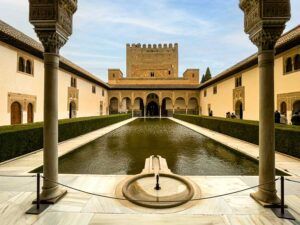 Understanding Hispanic Heritage should extend beyond a mere month of commemoration. There should be a year-round effort to educate our communities about the importance of outreach to Hispanic/Latinos. In addition, Islamic centers need to reach out to dedicated Latino Muslim leaders, educators, and volunteers to organize inclusive programs that can consistently promote awareness and appreciation. There is a wealth of materials including books, online resources, programs, and courses available in both Spanish and English, specifically catering to, and celebrating Latin American Muslims. Many of these have been created by and for Latinos and deserve our support. As we look ahead, let us aspire to further advancements in acknowledging this growing community within our ranks over the next twenty years. For additional reading, here is a list of books about Latin American Muslims.
Understanding Hispanic Heritage should extend beyond a mere month of commemoration. There should be a year-round effort to educate our communities about the importance of outreach to Hispanic/Latinos. In addition, Islamic centers need to reach out to dedicated Latino Muslim leaders, educators, and volunteers to organize inclusive programs that can consistently promote awareness and appreciation. There is a wealth of materials including books, online resources, programs, and courses available in both Spanish and English, specifically catering to, and celebrating Latin American Muslims. Many of these have been created by and for Latinos and deserve our support. As we look ahead, let us aspire to further advancements in acknowledging this growing community within our ranks over the next twenty years. For additional reading, here is a list of books about Latin American Muslims.


